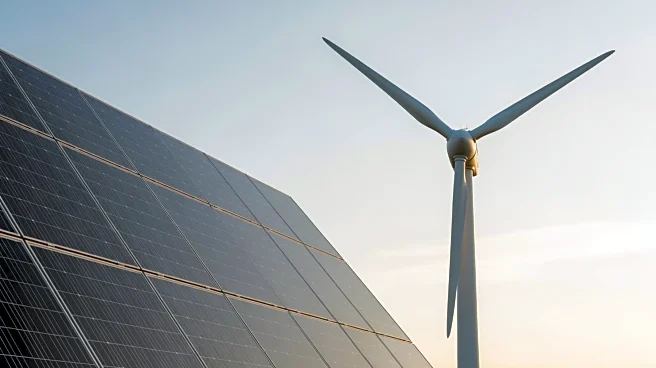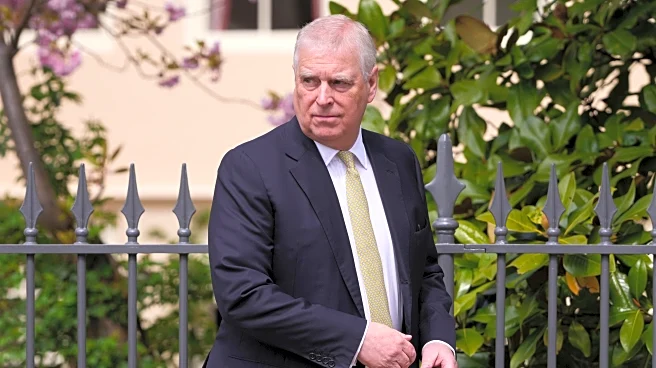What's Happening?
The International Energy Agency (IEA) has released a report highlighting the need for diversified and resilient energy production to meet future electricity demand, which is expected to rise significantly faster than overall energy growth. The report emphasizes
the role of renewable energy, particularly solar power, in meeting this demand, while noting that coal and oil demand may peak globally by the end of the decade. The IEA also stresses the importance of building resilience in energy systems to accommodate increasing demand from data centers, electrification, and other sectors.
Why It's Important?
The findings underscore the urgent need for countries to diversify their energy sources to ensure stability and sustainability in the face of growing demand. This shift is crucial for meeting climate change goals and ensuring energy security. The report suggests that investment in renewable energy and infrastructure improvements are necessary to support this transition. The emphasis on solar power and other renewables aligns with global efforts to reduce carbon emissions and combat climate change, offering potential economic benefits through the creation of green jobs and industries.
What's Next?
Countries are expected to increase their investment in renewable energy and infrastructure to support the transition to a more diversified energy system. This may involve expanding supply chains for critical minerals used in renewable technologies and improving grid and energy storage capabilities. The IEA's report could influence policy decisions at the ongoing U.N. climate negotiations, encouraging nations to commit to more ambitious climate targets and energy diversification strategies.
Beyond the Headlines
The report highlights the geopolitical implications of energy diversification, as countries compete to secure resources and technologies necessary for the transition. This could lead to shifts in global energy market dynamics, with emerging economies playing a more significant role. The focus on resilience also points to the need for international cooperation in addressing energy security challenges and ensuring equitable access to energy resources.















